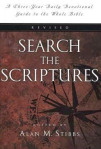Study 4 From The Book of Mark is: Mark 2:13 – 3:6
1.
Note how, when questions were
asked about His behaviour, Jesus made Himself and the work which He had come to
do the sufficient justification for His action.
Cf. 2:6-12. What claims was He
thus making for Himself?
2.
Why did not Jesus’s disciples
stand condemned for ‘doing what is not lawful on the sabbath’? Who did stand
condemned for their wrong use of the Sabbath in the subsequent controversy
concerning the healing of the man which a withered hand? Since Jesus used the
Sabbath as His day, and for men’s good, how ought we to use the Lord’s day?
Notes
1.
2:19. The ‘bridegroom’ is, according to Old
Testament usage, virtually a description of God in His covenant relation to His
chosen people Israel. Cf. Ho. 2:16-20
2.
2:25, 26. Note the repeated phrase ‘those who were with
him’. In such company their action could not be condemned.
3.
2:23, 24 and 3:2. The scribes taught that to pluck ears of corn
was a form of reaping which the law did not allow on the Sabbath (Ex. 34:21);
also that it was unlawful to do the work of healing on the Sabbath, unless life
was in danger.

